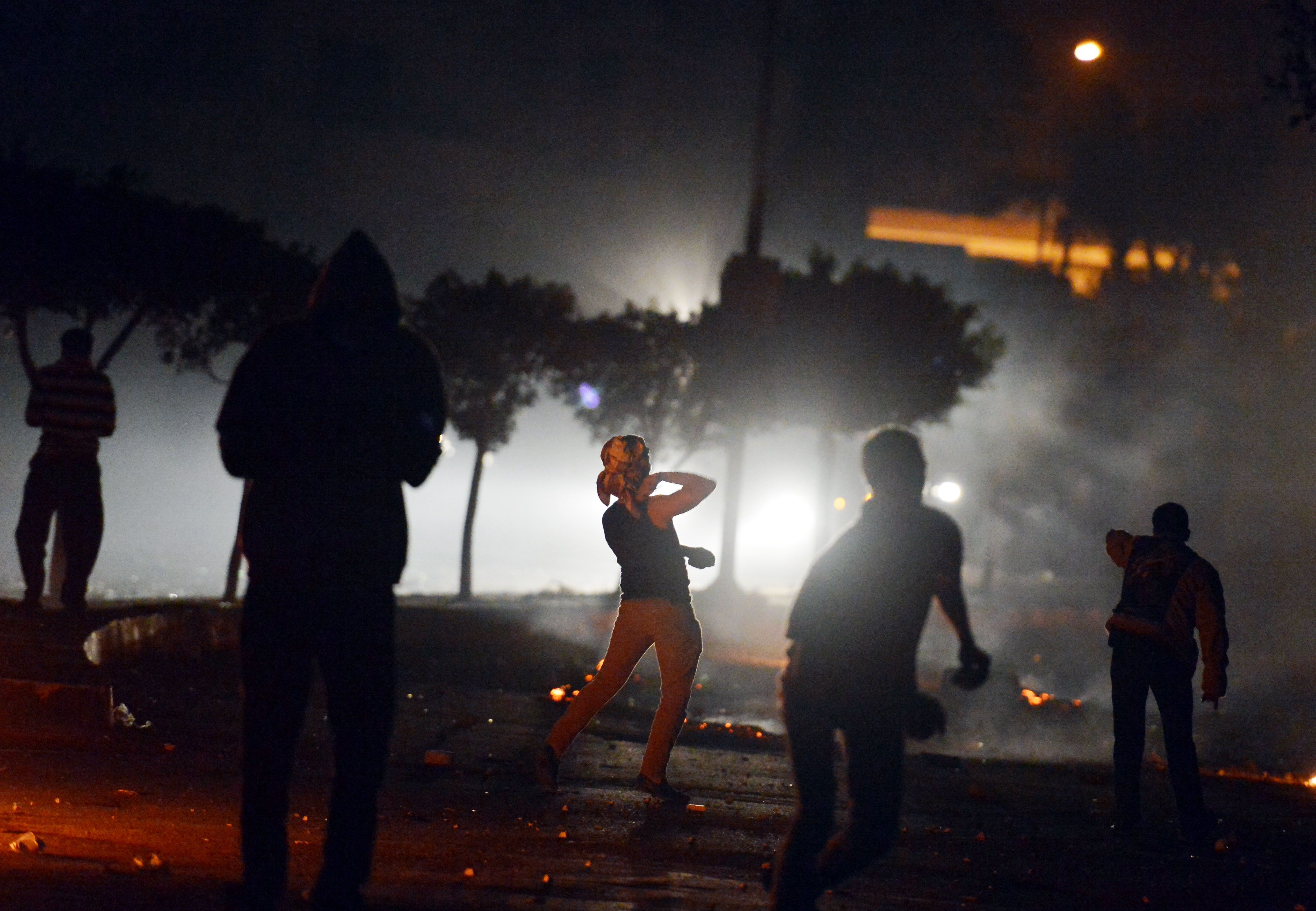By Manar Mohsen
The Freedom and Justice Party (FJP) announced it will hold demonstrations starting tomorrow in a countermove to the mass anti-Morsi protests planned for 30 June.
Gehad El-Haddad, a Muslim Brotherhood leader in charge of the Nahda [Renaissance] Project, said in a press conference on Thursday that the demonstrations will be “in support of the democratic path” and the current regime.
He added that the peaceful demonstrations in support of the regime would be held in Nasr City, out of consideration that the anti-Morsi protesters will be in Tahrir, as a precaution to avoid clashes between the two political forces.
The FJP repeatedly criticised the opposition for what it alleges is an unwillingness to take part in the democratic process brought about by the 25 January uprising.
“We will not challenge the figures given by the Tamarod movement,” El-Haddad said in reference to Tamarod’s claim that they had gathered 15 million signatures on a petition calling for the ouster of President Morsi. “But if they do have so much support, why not run in the parliamentary elections and then you would be able to form the government, change the constitution, and even challenge the president?”
FJP went on to attack Tamarod for refusing to engage in the official electoral process that is governed by the ballot box, saying that they chose to “put their hands with the former regime and thugs.”
The conference heavily emphasised that the 30 June protesters would give ground for the old regime to regain political power, and are likely to lead to thuggish activity during the mass protests.
“It is unacceptable by our standards for an opposition group to align itself with the old regime,” said El-Haddad, who also warned that they would not allow for the petition to lead to the resurgence of the old regime or the spread of violence.
The FJP placed full responsibility on the organisers of the 30 June protests to maintain the peaceful nature of the demonstrations, outlining that they must prevent any violent actions themselves, and help the police distinguish between peaceful protesters and thugs by separating themselves from any unlawful activity.
“[The police] have no concept of human rights, they have no concept of how to deal with protesters,” said El-Haddad. “That is why this differentiation [between peaceful protesters and thugs] needs to happen, to held the police differentiate between violence and nonviolent action.”
The FJP screened a short video of images portraying the incitement toward violence and thuggery that has taken place during recent anti-Morsi demonstrations. The video included screenshots of tweets by anti-government activists, including Ahmed Douma, calling for violent action against the Muslim Brotherhood. Other images were of attacks on Muslim Brotherhood members and headquarters by anti-government protesters.
“This is the kind of violence we do not want to see during the 30 June protests,” said one FJP member when introducing the video.
El-Haddad cautioned 30 June protesters that if they fail to safeguard their demonstrations from violence, “they must immediately separate their actions from those that are unlawful so that the police can step in.”
He added that it is reasonable to expect the organisers to have full organisational control over such large-scale protests, adding that the FJP is willing to offer their organisational ability if the protesters request assistance.
FJP lambasted the opposition for its refusal to the regime’s invitation for dialogue and cooperation toward solutions to national problems.
“You do not lead politics by saying, ‘that is bad,’ you lead politics by saying, ‘I have a solution,” said El-Haddad in criticism of the opposition’s approach. He added that the National Salvation Front (NSF) does not provide an effective opposition force to the Muslim Brotherhood because it is exceedingly divided along ideological lines.
The party used the press conference to once again voice its call for the opposition “to accept dialogue and follow the democratic path,” claiming that collaboration with the opposition is part of their commitment to establish democracy in Egypt.
El-Haddad made it clear that the FJP’s understanding of “the democratic path” rests largely on participation in the electoral process. He said that the FJP calls for the parliamentary elections to be held as soon as possible, and anticipates that they will take place within the year. He furthermore criticised opposition groups for continually requesting the delay of the electoral date on the basis that they need more time to prepare for the elections.
“The frustration of the opposition is because they cannot have a say… and that is why we need parliamentary elections as soon as possible,” El-Haddad said, claiming that the voices expressed in the Tamarod movement and 30 June protests should be channelled through parliamentarians rather than signatures on a petition.
According to El-Haddad, an important benefit behind holding parliamentary elections is that it would provide a legitimate evaluation of the popularity of the opposition, namely the NSF.
Ali Mourad, FJP media spokesperson, reiterated the pledge by the armed forces to refrain from interfering in politics and said that any involvement by the military would be to maintain national security.
The growing presence of tanks in the streets is part of an effort by the armed forces to aid the police in securing vital institutions and ensuring the safety of the people, El-Haddad added.
The conference comes a day after President Morsi gave a speech to commemorate his one-year anniversary in office. The three-hour address aimed to placate the growing discontent over political and socioeconomic conditions that have propelled the 30 June protests.


